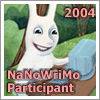Janet Frame
During my movie watching phase, I came across Jane Campion's film An Angel at my Table at my local video store, and struck by the fact that the box for the movie was more than usually slathered in the breathless praise of film critics, I rented it, watched it, and correspondingly enjoyed it. Not because it was recommended, mind you. There have been plenty of movies which critics have nearly drowned in seas of frenzied hyperbole that I thought were beyond the limits of boring. Yet, this movie was different.
Shot before Campion's more famous film, The Piano, Angel at my Table told the story of Janet Frame. Based on her autobiographies about growing up New Zealand, the film portrayed Frame's life as an impoverished child, her early work as a young adult writer, and her trip to the "mirrored city" in Spain. While most people remember the horror of her unjust hospitalization for schizophrenia (she wasn't schizophrenic), I will always remember her mirrored city. Describing a physical place from where she could look out over the dark bay at night and see the glowing lights of the buildings on the other shore reflected into the inky ocean, Frame observed that the city in the water was the mirror of the city above. Yet, she also indicates that the mirrored city is also a symbol for the imagination. It would difficult to describe more without taking away from my experience of that metaphor in movie, therefore I stop here.
Except to say that I, for one, am sad to learn of Janet Frame's death. I sincerely hope her old age was as sweet and pleasant as she wished, and that her memories of poverty, loss, and pain were not very sharp.
Shot before Campion's more famous film, The Piano, Angel at my Table told the story of Janet Frame. Based on her autobiographies about growing up New Zealand, the film portrayed Frame's life as an impoverished child, her early work as a young adult writer, and her trip to the "mirrored city" in Spain. While most people remember the horror of her unjust hospitalization for schizophrenia (she wasn't schizophrenic), I will always remember her mirrored city. Describing a physical place from where she could look out over the dark bay at night and see the glowing lights of the buildings on the other shore reflected into the inky ocean, Frame observed that the city in the water was the mirror of the city above. Yet, she also indicates that the mirrored city is also a symbol for the imagination. It would difficult to describe more without taking away from my experience of that metaphor in movie, therefore I stop here.
Except to say that I, for one, am sad to learn of Janet Frame's death. I sincerely hope her old age was as sweet and pleasant as she wished, and that her memories of poverty, loss, and pain were not very sharp.
03 February 2004
Comments:
Post a Comment
